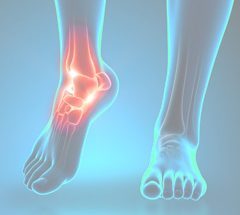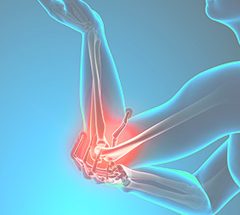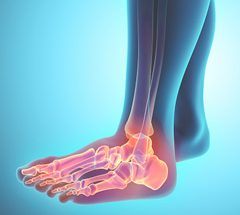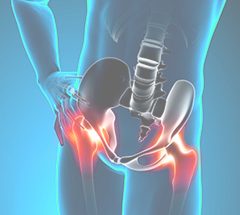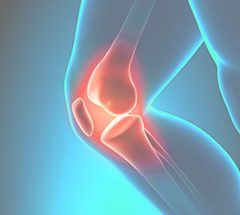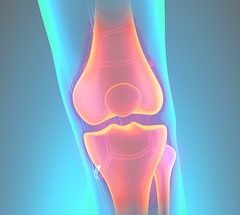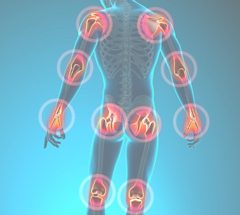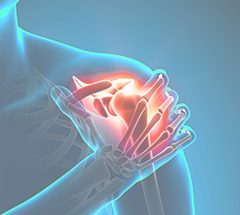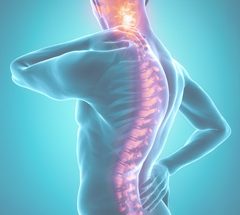
At one point or another we have all heard somebody say “drink your milk if you want strong healthy bones!” This suggestion implies that you need vitamin D for strong healthy bones; a widely known fact that everybody adheres to, but what about vitamin C? Most people don’t know it, but vitamin C actually supports bone health.
This essential micronutrient plays an important role in many metabolic pathways, but it is also crucial to musculoskeletal health. Since its discovery in the 1930s, vitamin C has been the subject of much research due to its ability to prevent and/or treat disease. For orthopedics vitamin C serves a few extremely useful purposes: bone strengthening, fracture healing, and osteoarthritis treatment/prevention.
Before examining the effects of vitamin C on these orthopedic topics, let’s take a closer look at vitamin C itself.
The entity known as vitamin C
Unlike other animals, humans cannot store vitamin C, and thus we have to get it from the food we eat. Vitamin C is found naturally in lots of fruits and veggies that we intake everyday. Some examples include: cereals, juices, kiwi, grapefruit, red pepper, Brussels sprouts, tomatoes, potatoes, and much more. Due to its presence in many normal foods it is pretty easy to get your daily-recommended intake of vitamin C.
Depending on age and smoking habits, the daily-recommended intake of vitamin C can vary greatly. For the average adult daily intake is recommended at 75mg for women and 90 mg for men. However, smokers should consume at least 35 mg more of vitamin C per day, as smoking directly depletes the vitamin C you intake.
So what exactly does vitamin C do for our bodies? Well, it repairs tissues and builds collagen, which is important for making new skin cells, cartilage, tendons, ligaments, and blood vessels. Vitamin C is also essential in healing open wounds and repairing/maintaining bones.
From an orthopedic standpoint, vitamin C’s contribution to the creation and maintenance of tendons, ligaments, and bones is most pertinent. So, for the sake of this article we will focus on its benefit for bones.
Bone density
While there have been many studies on the effects of vitamin C on bone density, the most promising correlation has been found in postmenopausal women.
One specific study focused on the association between vitamin C intake and the bone density in the neck. The study took care to adjust calcium intake, physical activity, smoking, age, weight, and estrogen use. The study then measured several 100 mg increases in vitamin C intake in 775 participants. It was found that there was a 0.017 g/cm2 increase in bone density of the neck in those patients who had an increase in vitamin C. Other studies have also attributed credit to the positive correlation between vitamin C intake and bone density. In fact, it has been found that decreased intake of vitamin C is associated with osteoporosis and bone density loss.
Although there is some evidence to support the claims that vitamin C intake is directly related to bone density, many scientists and doctors still disagree on the validity of this statement; meaning more studies are required. However, it is widely accepted that the vitamin C plays a role in collagen formation, bone matrix development, and osteoblast differentiation.
Vitamin C and Arthritis
Arthritis is a huge issue for many orthopedic patients and doctors. It is a disease that is difficult to combat in advanced stages, and thus much research has been done in search of ways to keep the disease at bay.
Due to studies in the early 2000s a buzz began to spread about how a balanced intake of vitamin C can affect arthritis. A study at Duke University found that high levels of vitamin C activated a protein that causes bone spurs, which in turn actually accelerates joint damage and pain in patients with osteoarthritis. Conversely, another study showed that people with low levels of vitamin C were 3 times more likely to develop rheumatoid arthritis than those who had normal levels of vitamin C.
Although this sounds like a mixed review, it is actually spot on with the hypothesis that a balanced intake of vitamin C keeps arthritis at bay. The first study showed that an EXCESS of vitamin C worsens osteoarthritis while the second study showed that the proper amount of vitamin C lowers the chance of rheumatoid arthritis. Thus, it can be deduced that if you stay within the daily recommendation of vitamin C intake you will be doing your part in keeping arthritis pains and symptoms at bay; at least from a vitamin C stand point.
Vitamin C Conclusions
The goal of this article was to discuss how vitamin C intake affects the health of bones. Although more research is needed to determine how the vitamin affects bone density, there is at least some evidence that vitamin C does increase bone strength in postmenopausal women. This is a promising sign, and a driving factor for continued research. Positive outcomes were also seen when looking at vitamin C’s role at treating and preventing arthritis.
So, if it’s effective and easy to consume why not make sure you get your daily-recommended dose of vitamin C? Your bones and taste buds will thank you!
Citations:
Arthritis Today Staff. “The Right Amount of Vitamin C.” Vitamin C Amount. Arthritis Foundation.
Harvey, Edward J., Asim Makhdom Makhdom, Adam Cota, and Adam Hart. “The Role of Vitamin C in Orthopedic Trauma and Bone Health.” The American Journal of Orthopedics 44.7: 306-11
“Vitamin C (Ascorbic Acid).” University of Maryland Medical Center. University of Maryland Medical Center, 2013

